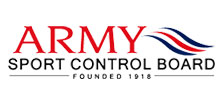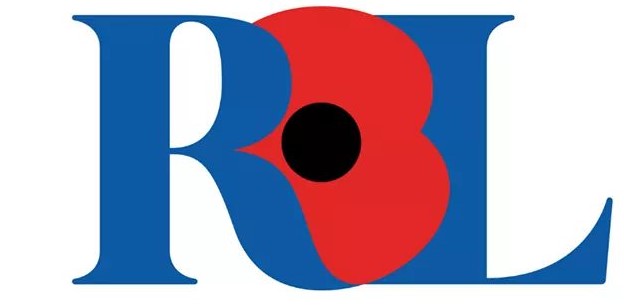BRITISH ARMY BOXING COACHING
- All Coaches are to ensure that any Coaching activity is compliant with all current COVID 19 guidance from;
- Public Health England
- England Boxing
- The Devolved Government guidance
- Single Service Sports Board policy
- The role of a Coach is twofold to provide fitness, skills and technical training for a Boxer in preparation for a bout and then to provide tactical advice for the Boxer during a bout. The Coach is responsible for the development and safety of the Boxer during any training, any Coach MUST hold a current valid qualification and be registered with their sS Association prior to the commencement of any boxing training. Coaches are expected to be fully conversant with the rules of boxing. Registration procedures are detailed in Section 7 and Coaches should register using Annex C to Section 7.
Qualifications
- The current qualifications and the period of validity of England Boxing Coaches are;
- Level 1 – Valid for 3 years from the date of qualification, Level 1 Coaches may refresh this qualification after 3 years or prior or upgrade to Level 2 after a minimum period of 1 year (See Para 29 of this section with reference to upgrading to Level 2).
- Level 2 – Valid for 3 years from date of qualification, after which a refresher must be taken, this must be annotated on the Refresher Proforma at Section 7 Annex E. To upgrade to Level 3 a Level 2 Coach must have practised for a minimum period of 2 years and have a recommendation from their Single Service Boxing Coach.
- Any Level 2 Coach who has no activity in their registration book or who has not registered for 3 years will revert to Level 1.
- Level 3 and 4 – Valid for 3 years from date of qualification, after which a refresher must be taken, this must be annotated on the Refresher Proforma at Section 7 Annex E. A Level 3 Coach must have practised for a minimum period of 2 years and have a recommendation from a Level 4 Coach.
- All Coaching qualifications are only considered valid in conjunction with one of the following qualifications;
- First Aid at Work Certificate – Valid for 3 years and applicable for ALL UKAF personnel.
- Mandatory Annual Training Test 3 (Battlefield Casualty Drills) at a minimum of Level 2 – Valid for 1 year and only applicable for Army BA.
- Command Management and Assurance Tool – First Aid level 2. Valid for 1 year and only applicable for RNBA.
- MOD 1 First Aid – Valid for 3 years and only applicable for RAFBA.
Hierarchy of qualifications and limitations
- Any boxing team or club must have a minimum of a Level 2 Coach to oversee any Coaching or training plan that is to be delivered by any number of Level 1 Coaches. Any unit that has an aspiration to box at any level, sub unit or Inter Unit or Charity events involving civilians must register the Coaches in advance of the commencement of training.
Safe Practice
- All Coaches involved in training Boxers must be aware of unit emergency action plans for accidents and incidents, see Annex A to Section 3.
- A Level 2 Coach must be in attendance if any Sparring (other than Technical Sparring definitions at para 15) is to take place.
- Prior to any training Coaches are to ask Boxers to declare if they are fit to take part in the scheduled training paying particular attention to reports of headaches. Any Boxer that reports with a headache the Head Coach is to ensure that the protocol at Annex A to Section 3 is followed.
- Risk assessments for Sparring can be found as an appendix to Section 5, the Risk Assessment only includes the generic risks, and Coaches must add any local risks as necessary.
Concussion
- Boxers who suffer a Concussion are to follow the protocols at Annex E to Section 5, these are age specific and not year of birth.
Training
- The training of a boxing team or Boxer in the UKAF is usually governed by work and unit commitments, therefore the training plan should reflect this, to allow a Boxer to adapt to Coaching and to elevate their fitness to a level appropriate to box competitively a period of 6 weeks is suggested. This does not have to be full time but should incorporate fitness and skills training.
- A suggested unit training plan is provided at Annex A to Section 5 this can and should be adapted to suit your unit commitments and the ability of your Boxers.
- Coaches are to ensure all Boxers have been declared “Fit to Box” and are in possession of a current Annual Medical (Section 12 Annex B) before starting any form of boxing training.
- Coaches are expected to maintain the highest standards of conduct and are to highlight to the Boxing Officer any irregularity that may be present in a Boxer’s declaration of experience. The Boxing Officer is to notify the Single Service Sec of any such irregularity.
Sparring
- Sparring in Boxing can take several forms as follows;
- Technique Sparring – where a specific skill is developed. Usually the speed is controlled and the sparring partner acts in a semi passive role, for example, lead hand to the head with a block as a defence. Technique sparring is vital for the beginner. This activity can be done on the gym floor with mass participation, can be supervised by Level 1 and does not need to be logged.
- Conditioned Sparring – In conditioned sparring, you set a condition (or several conditions) that each Boxer must follow. The speed is more realistic than a technique spar, but the power is usually kept quite low. The Sparring is generally aimed at skill development for an individual. Typically, 80% of sparring is conditioned.
- An example of a conditioned spar is;
Boxer A is only allowed to throw a straight lead or rear hand to the head.
Boxer B may only use hand defences
After a given period the Boxers swap roles.
- This activity is to be undertaken in a boxing ring it must not involve heavy shots to either Boxer and does not require to be logged but must be supervised by a Level 2 Coach all Boxers must wear head guards, gum shields, abdominal protectors and sparring gloves.
- Open Sparring – where the range of punches and defences are unlimited. Punches and footwork are at full speed. Even in open sparring, the power is reduced. Coach feedback and correction is given on the move so that the flow is uninterrupted. Open sparring is not a contest, it is still a learning experience under conditions which start to approach the intensity of a s contest. This activity must be conducted in a boxing ring where conditions are as to wear head guards, gum shields, abdominal protectors and sparring gloves. This must be logged and closely monitored by Level 2 Coach with strict adherence to the unit Risk Assessment.
- The UKAFBA Sparring Log can be found at Annex D to Section 5 and must be completed by Boxers and Coach for every session and filed for 3 months.
- Sparring Boxers who are not service personnel is permitted only when the service Boxer is registered with England Boxing for civilian boxing and the Coach is also registered as a Level 2 Coach with England Boxing for civilian boxing. The individuals must be appropriately matched, registered with an AIBA affiliated National Governing Body or is a registered Boxer with the British Boxing Board of Control or British and Irish Boxing Association, the individual must have an in date Annual Medical, have a record book which includes ALL their combat sport experience, and not be serving a medical suspension.
- Sparring Injuries and Medical Suspensions must be reported to the Medical Centre and any medical suspensions must be applied in line with those awarded for competitive boxing See Section 12 Annex F and any return to training must comply the Concussion Protocols at Annex E1 or E2 to Section 5.
Competition
- The role of the Coach for competition is to ensure the Boxer is at the appropriate weight and is matched appropriately according to weight and experience (See Section 4). The Supervisor of the boxing will authorise the bout only if both Coaches agree to the bout and that both Boxers are matched appropriately. The Coach is to ensure that the Boxer receives a drink of water and any appropriate tactical advice between rounds of the bout.
- Any registered qualified Coach may be in the corner during a bout, Coaches may communicate with their Boxer during the bout but are not permitted to shout, to clap, to encourage or incite the spectators. Coaches are not permitted to touch the ring during the progress of the round or cause a distraction or disturbance to the bout.
Dress
- The minimum standard of dress for Coaches for any competition is;
- T Shirt, Polo Shirt or Tracksuit Top
- Tracksuit Trousers
- Training Shoes
Prohibited Items
- The following are deemed to be inappropriate;
- Vests or Singlets
- Shorts (Service Boxing Only (may be relaxed only with the Supervisor permission)
- Any article of clothing that carries offensive symbols or language.
- Hats (Rule for Armed Forces personnel)
- Flip Flops or Sandals.
Conduct and Behaviour
- 3 Coaches may be “in the corner” for a Boxer but only 1 may enter the ring, only 1 may stand on the ring and 1 must remain on the ground.
- Coaches must remain seated in the designated Coaches seating area during the progress of a round.
“Seconds will not be permitted to stand up and / or to encourage or incite spectators by word or signs during the progress of a contest. Seconds will not be allowed to touch the ring during the round, yell, clap or cause a scandal or disturb the competition.”
- Coaches may Coach their Boxer from the corner but must adhere to para 24 above, failure to do so may result in cautions, warnings or DQ.
- A Boxer’s safety during a bout is the responsibility of the referee, a Coach may retire a Boxer between rounds by indicating to the referee, or during a round by “throwing in the towel”.
- Service Boxing Coaches less those seconding sS Boxers in the Inter Service Championships or Single Service Coaches seconding a UK Armed Forces BA Boxer in the Elite Open National Championships may administer any substance to manage a cut Boxer.
Decisions
- A complete list of the decisions that determine a boxing match can be found at Section 6 Annex F.
Fouls, Warnings and Disqualifications
- A complete list of fouls, warnings and disqualifications can be found at Section 6 Annex G.
Coaching Courses
- Coaching courses can be run at unit or regional level for both Level 1 and Level 2 qualifications. Such courses are to be funded individually. Any person planning a course must complete the application form at Annex E to Section 5 which must be sent to the sS Secretary to arrange appropriately qualified Tutors and Assessors.
- Criteria for attending Level 1 and Level 2 Coaching courses are as follows are below and must be strictly adhered to;
- Level 1 – Applicants must have an understanding and enthusiasm for the sport of boxing.
- Level 2 – Upgrade from Level 1 to Level 2. Applicants must have held a Level 1 qualification and have been registered with a sS Boxing Association for a minimum of 1 year, MUST be in date, MUST NOT have allowed 3 yrs to have elapsed since qualifying at Level 1.
- Renewal at Level 2. Applicants must hold a Level 2 qualification that is due to lapse within a year or has lapsed by less than 6 months (Level 2 qualifications last for 3 years from the date of qualification).
- Failure to meet the criteria detailed to enlist on a Coaching course will exclude Coaches from attending those courses. There will be no exceptions.
Advice
- Advice on Coaching is available from the sS Coaches as;
RNBA – Sgt Wayne Brookes
Tel Mil: 9380 24290
Tel Civ: 02392 724290
Email: Wayne.Brookes859@mod.gov.uk
Army BA – Sgt James Allen
Tel Mil: 94 222 3181
Tel Civ: 01252 348181
Email: James.Allen785@mod.gov.uk
RAFBA – Sgt John Kearns
Tel Mil: 94 120 6318
Email: John.Kearns774@mod.gov.uk







